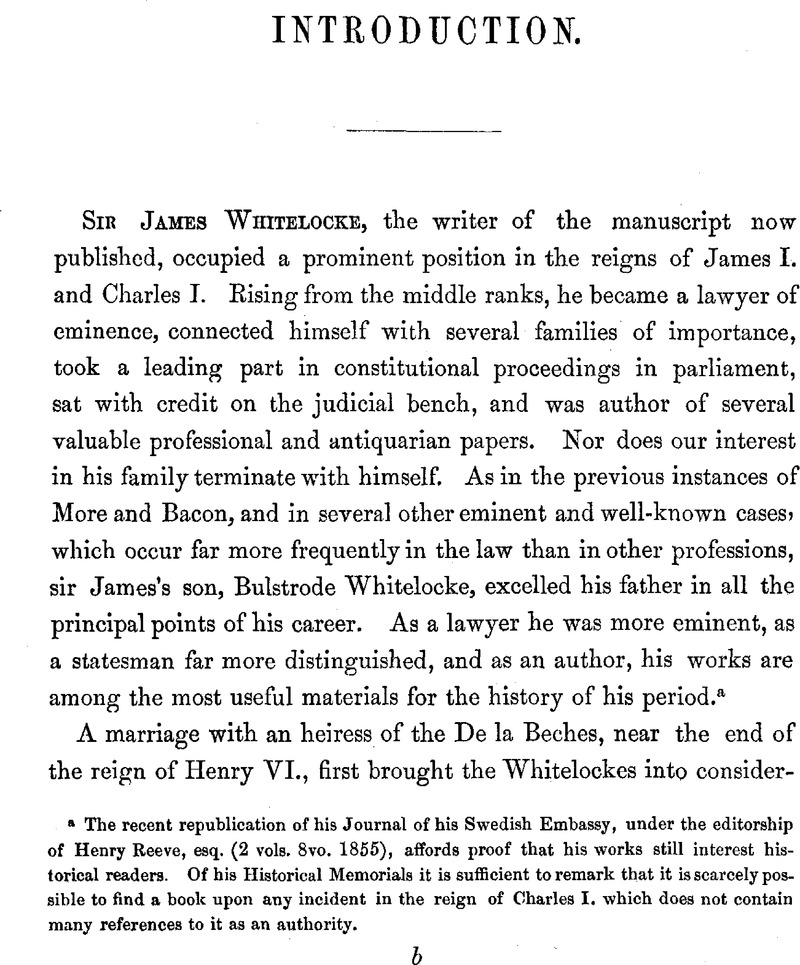No CrossRef data available.
Article contents
Abstract

- Type
- Introduction
- Information
- Copyright
- Copyright © Royal Historical Society 1858
References
page note i a The recent republication of his Journal of his Swedish Embassy, under the editorship of Henry Reeve, esq. (2 vols. 8vo. 1855), affords proof that his works still interest historical readers. Of his Historical Memorials it is sufficient to remark that it is scarcely possible to find a book upon any incident in the reign of Charles I. which does not contain many references to it as an authority.
page note vii * Reports of Bates's case, and the proceedings to which it gave rise, will be found in Howell's State Trials, i. 371.
page note x * “The aldermen desired to know his pleasure, whether he would not give them leave to have a free election; he answered, ‘Aye,’ but still pressed his commendation, which he expected they should regard.” (pp. 66, 67.)
page note xiii a “Cupboard men—There are four, who in the reading times argue in turns the reader's case, beginning at the puisne…. These four cupboard men were wont to be the four ancientest barristers of the house who were to be the two next readers of the house, and this was observed whether they purposed to be readers or not; but by an order of later time no man ought to take upon him to be a cupboard man unless he resolveth to read.” Dugdale's Origines, p. 203. The passage was pointed out to me by Mr. P. C. Carrington.
page note xiv a The extracts from the registers of this parish, published with much skill and judgment by my friend Mr. John Gough Nichols, in the Collectanea Topographiea and Genealogica vols. IV. and V., contain many entries which relate to the Whitelockes and the cognate families.
page note xv a Whitelocke's Memorials, ed. 1732, p. 13.
page note xv b Ibid. p. 34.
page note xv c Ibid. p. 39.
page note xvii a I am reminded by Mr. W. Durrant Cooper that Fawley Court is memorable as having been one of the houses in which William III. rested on his progress from Torbay to London. He received there the declaration from the peers, who assembled on the withdrawal of James II., and an address from the Corporation of London. (Diary of Lord Rochester, ii. 224.)
page note xviii a Whitelocke's Mem. p. 17.
page note xviii b Langley's Hist. Desborough, p. 202.
page note xviii c Whitelocke's Mem. p. 18.
page note xviii d Ibid. p. 11.
page note xix a Cat. MSS. Angliæ, p. 344.
page note xix b Memorials, p 65.




